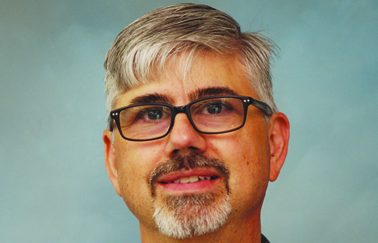If I could reform elections
Published 11:05 am Thursday, June 27, 2019

- Pete Koutoulas is an IT professional working in Lexington. He and his wife have resided in Winchester since 2015.
As I write this, NBC is gearing up this week to televise the Democratic presidential debates, a two-night extravaganza featuring some 20 contenders for the party’s nomination. Four others failed to qualify because they weren’t polling high enough.
Just last week, President Donald Trump kicked off his reelection campaign with a rally in Florida.
A glance at the calendar reminds me we’re just a few days into summer. That would be the summer of 2019, which happens to be more than 220 days before the first state, Iowa, votes on a nominee. It’s 385 days until the Democratic Party convention in Milwaukee officially nominates a candidate for the highest office in the land. And a full 498 days until we finally get to vote for our choice for President of the United States, on Nov. 3, 2020.
Think about that. We are now entirely into campaign season for the American presidency, and we still have almost 500 days left to listen to speeches, watch media ads and read endless media reports about strategy, polling and other minutiae of this process. There will also be some talk of actual policy.
Now, I realize there are political wonks out there who love this. I have friends who are excited about watching the debates this week and who are already making up their minds about which candidate to support. Of course, these people are all Democrats — for Republicans, it’s not likely they will have much to talk about until next summer as it would be highly unusual for a sitting president to face a serious primary challenge. For independents and members of other parties — well, we’ll talk next year.
As for me — and I suspect for the majority of Americans — this whole process has gotten out of hand. There is absolutely no legitimate reason why it should take a year and a half to select a president. Not only is this a tremendous waste of time and resources, but it is also a massive distraction from more important matters.
If I were appointed “Presidential Election Czar,” here is how I would reform the process. (Before you complain that some or all of my proposals would require amending the Constitution, remember this is a thought experiment.)
First, I would make the primary election a national, rather than a state-by-state affair. Set a date for the primary election to take place about 90 days before the general election, so around the first week of August.
Second, I would make all primaries open and nonpartisan. There would be one slate of candidates, and everyone — regardless of party affiliation — would select one person from that slate. The two highest vote-getters would then advance to the general election, even if they happen to represent the same party.
Third, I would outlaw all campaigning until 90 days before the primary. During this period before campaigns are allowed to begin officially, there would be no organizing, no canvassing, no speeches, no rallies, no polling, and absolutely no fundraising.
Finally (and speaking of fundraising), I would enact true campaign finance reform. My legislation would outlaw all giving except individual voters, and then only up to a set amount, perhaps $1,000 or so.
There is no need to spend hundreds of millions of dollars on campaigns, other than to keep up with the escalating arms race that has become American politics. I know our campaigns are expensive — my point is most of what they do is unnecessary if the goal is to get the candidate’s message out to voters.
Just one more thing: no more electoral college. Whoever has the most votes wins, period.
I think my plan would do many things would help make this process fairer and less troublesome. Besides shortening the campaigns, I think it would put every state into play. No more letting a few “swing states” decide the presidency.
I also think it would significantly reduce the power of the major parties to control the process. I think if given a choice, most Americans would choose not to identify with either the Republican or the Democratic parties as they exist today.
I happen to agree with our first president, George Washington, who spoke the following words at his farewell address Sept. 17, 1796:
“However [political parties] may now and then answer popular ends, they are likely in the course of time and things, to become potent engines, by which cunning, ambitious, and unprincipled men will be enabled to subvert the power of the people and to usurp for themselves the reins of government, destroying afterwards the very engines which have lifted them to unjust dominion.”
I don’t know about you, but when I look at how the process plays out today, I can’t help but think that General Washington was prophetic in his words.
Final thought: What matters would occupy your mind in the extra year you would have not to have to think about presidential politics?
Pete Koutoulas is an IT professional working in Lexington. He and his wife have resided in Winchester since 2015. Pete can be reached at pete@koutoulas.me or follow him on Twitter @PeteKoutoulas.





